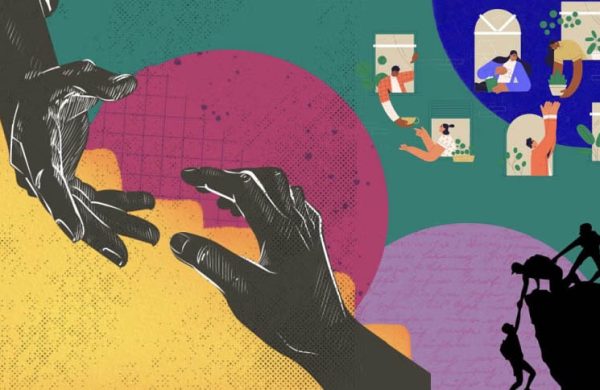The power of goodness
- Update Time : Thursday, June 12, 2025

—Debra Efroymson—
“The social situation is deteriorating day by day.” “Nothing ever gets better here.” “People are so selfish now.” People seem to love making negative remarks about societal breakdown and people’s lack of concern for others. Virtually all older people will tell you how different things were before; their parents and grandparents no doubt made similar observations. Such remarks are dispiriting. They also serve to excuse one’s own selfishness—if everyone else is acting only in their self-interest, why should I worry about others?
Perhaps my endless optimism is its own illusion, but I can’t help but notice goodness all around me. Let me offer three quick examples from the other day. As I was walking in the morning, a woman ahead of me, busy chatting with a friend, dropped her phone unawares. I picked it up and handed it to her—as, I hope, anyone would have.
A bit later, I was trying to cross a street but was deterred by a giant puddle, too big for an old lady like myself to leap over. “If only someone would offer me a hand,” I thought. Almost immediately a man walking by on the footpath turned to me. “Do you need a hand?” With his help I was able to clear the puddle and continue on my way.
Mind you, only a few minutes before being deterred by the puddle, I had glanced at an article in The Guardian about how political divisiveness risks destroying the sense of neighbourliness that causes people to help each other in times of need. Social fragmentation is real and dangerous. Lack of concern for others is a contagious disease that can seriously harm the body politic. The warning is important. It is also important to fight it actively, and to pay attention to all the kindness that still surrounds us.
Shortly after the man helped me clear the puddle, a different man told me that I had dropped something. I looked down, sure enough, a small, insignificant, but to me precious, object had slipped out of my bag. I thanked him, recovered Snowball the finger puppet (a character in my book Life Lessons with Bianca), and went on my way. When I later mentioned the incidents to a couple of men, they suggested it was my lucky day and I should buy a lottery ticket. We laughed together, enjoying a brief moment of connection.
Why do small acts like this matter? As I said, it’s too easy to believe in the selfishness and hard-heartedness of others. The media magnifies malignant acts, making cruelty seem the norm. In Bangladesh and around the world, people face enormous crises that cannot be resolved without cooperation. Cooperation requires trust. Acts of kindness towards strangers, however small and seemingly insignificant, help build that trust and remind us that, however it may seem from reading the paper or watching the news, cruelty is almost always the exception, not the norm.
When my young friends complain that nobody ever does anything for others, I have two requests for them: try to pay more attention to the kindness you are ignoring (“I’ll see it when I believe it”), and make sure that you engage in small acts of kindness yourself. We won’t always be rewarded as immediately as I was that day, but if we pay attention, we will notice that there is a lot of goodness out there, that most people are not cruel, that especially in the majority world there is still a thriving community that we can continue to build on.
So yes, before criticising others, let’s make sure that we are the kinds of people we want others to be. Let’s also pay more attention to the positive signs; once we do, I’m sure we will notice how ubiquitous they are. Let’s remind others when they make the inevitable negative remarks about societal breakdown that, in fact, community and kindness continue to flourish. And then, together, we can rebuild the society we wish to live in.
————————————————————–
Debra Efroymson is executive director of the Institute of Wellbeing, Bangladesh.


















